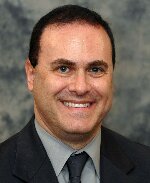
We are pleased to announce that Professor Gregory Gordon of the University of North Dakota has joined the Sentinel Project’s Advisory Council, where he will share his expertise on hate speech and harmful language. For a detailed outline of Professor Gordon’s impressive career, see his biography below. First, a few words of his own words on why he has joined the Sentinel Project:
I am a former genocide prosecutor. My current scholarly work concentrates on achieving proactive genocide prevention through monitoring atrocity-focused speech, countering it with salutary speech and prosecuting it judicially when non-punitive measures are no longer feasible. The work of the Sentinel Project – nipping genocide in the bud through an early warning system and effective, coordinated countermeasures – aligns perfectly with my life work and scholarly agenda. My goal in working with the Sentinel Project is to provide insight and assistance with respect to the speech-focused and related aspects of the early warning system and countermeasures. The Sentinel Project is developing the tools to eradicate genocide once and for all. I want to do whatever I can to help in that essential endeavor.
Biography
Professor Gordon is Director of the UND Center for Human Rights and Genocide Studies and teaches courses in criminal law, criminal procedure, comparative law, international law and international human rights law. He earned his Bachelor of Arts degree (summa cum laude) and Juris Doctor at the University of California at Berkeley. He then served as law clerk to US District Court Judge Martin Pence (D. Haw.). After a stint as a litigator in San Francisco, he worked with the Office of the Prosecutor for the International Criminal Tribunal for Rwanda (ICTR), where he served as Legal Officer and Deputy Team Leader for the landmark “media” cases, the first international post-Nuremberg prosecutions of radio and print media executives for incitement to genocide. For this work, Professor Gordon received a commendation from Attorney General Janet Reno for “Service to the United States and International Justice.”
After his experience at the ICTR, Professor Gordon became a white-collar criminal prosecutor with the US Department of Justice, Tax Division. Following a detail as a Special Assistant US Attorney for the District of Columbia, he was appointed as the Tax Division’s Liaison to the Organized Crime Drug Enforcement Task Forces (Pacific Region) for which he helped prosecute large narcotics trafficking rings. During this time, he was also detailed to Sierra Leone to conduct a post-civil war justice assessment for the DOJ’s Office of Overseas Prosecutorial Development, Assistance, and Training. In 2003, he joined the Criminal Division’s Office of Special Investigations, where he helped investigate and prosecute Nazi war criminals and modern human rights violators.
Professor Gordon has been featured on C-SPAN, NPR, the BBC and Radio France Internationale as an expert on war crimes prosecution and has lectured on that subject at the United Nations, the US Army JAG School, the Harry S. Truman Presidential Museum and Library, and the United States Holocaust Memorial Museum. In addition to contributing to the Holocaust Museum’s influential “Voices on Antisemitism” podcast series, he has had the honor of speaking to members of both the British and Canadian Parliaments and sharing the dais with former UN Ambassadors Richard Holbrooke and Andrew Young. He has trained high-level federal prosecutors in Addis Ababa at the request of the Ethiopian government, as well as prepared prosecutors for the Khmer Rouge leadership trial at the Extraordinary Chambers in the Courts of Cambodia in Phnom Penh and trained lawyers and judges at the War Crimes Chamber for the Court of Bosnia and Herzegovina. His scholarship on international criminal law has been published in leading international academic publications, such as the Columbia Journal of Transnational Law, and the Virginia Journal of International Law. He has presented his work at institutions such as Harvard Law School, Yale University, Georgetown University Law Center, Emory University, and Katholieke Universiteit Leuven. He was the inaugural winner of the North Dakota Spirit Law School Faculty Achievement Award in 2009.
In 2010, Professor Gordon co-wrote the US Supreme Court amicus brief of Holocaust and Darfur Genocide survivors in the historic human rights case Yousuf v. Samantar. He also represented the International League for Human Rights at the International Criminal Court Conference in Kampala, Uganda.
